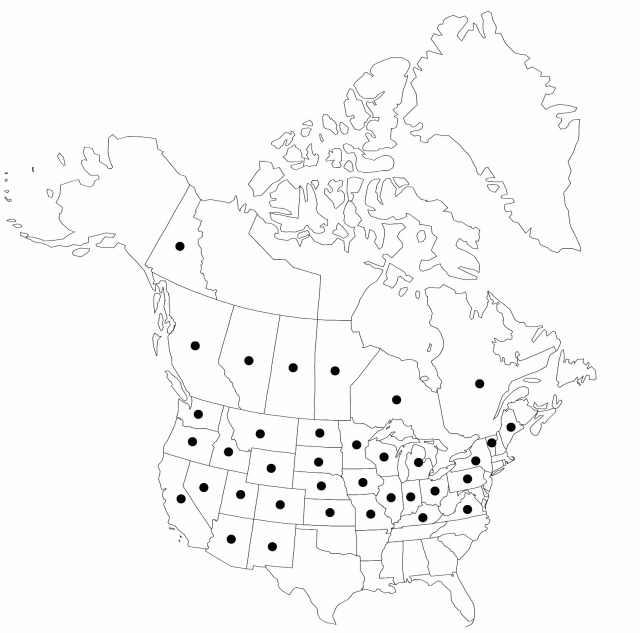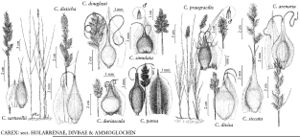Difference between revisions of "Carex praegracilis"
Bot. Gaz. 9: 87. 1884.
FNA>Volume Importer |
imported>Volume Importer |
||
| (2 intermediate revisions by 2 users not shown) | |||
| Line 8: | Line 8: | ||
}} | }} | ||
|common_names=Carex très grêle | |common_names=Carex très grêle | ||
| + | |special_status={{Treatment/ID/Special_status | ||
| + | |code=F | ||
| + | |label=Illustrated | ||
| + | }} | ||
|basionyms= | |basionyms= | ||
|synonyms= | |synonyms= | ||
| Line 46: | Line 50: | ||
|publication title=Bot. Gaz. | |publication title=Bot. Gaz. | ||
|publication year=1884 | |publication year=1884 | ||
| − | |special status= | + | |special status=Illustrated |
| − | |source xml=https:// | + | |source xml=https://bitbucket.org/aafc-mbb/fna-data-curation/src/2e0870ddd59836b60bcf96646a41e87ea5a5943a/coarse_grained_fna_xml/V23/V23_532.xml |
|genus=Carex | |genus=Carex | ||
|section=Carex sect. Divisae | |section=Carex sect. Divisae | ||
Latest revision as of 20:41, 5 November 2020
Rhizomes coarse, 1.8–3 mm thick, typically with long, unbranched segments from which shoots arise singly every few nodes. Culms sharply trigonous, (10–)25–80(–100) cm, scabrous-angled distally. Leaves: basal sheaths dark brown to nearly black; sheaths with hyaline inner band, apex not prolonged, glabrous; ligules 0.6–2.6 mm; blades 1–3(–3.5) mm wide. Inflorescences elongate, 0.9–4 cm; spikes 5–18(–25), usually unisexual; staminate spikes lanceoloid; pistillate spikes ovoid. Pistillate scales straw colored to pale reddish brown, with hyaline margins, ovate, apex acute to acuminate-awned, dull to ± satiny. Anthers (1.8–)2.2–3.9 mm, apiculus bristly hairy (30X). Perigynia brown to nearly black at maturity, essentially veinless, usually stipitate, ovate, plano-convex, (2.2–)2.6–3.7 × 1.2–1.9 mm, dull; beak 0.7–1.2 mm, 1/4–1/2 length of body, apex ± hyaline, obscurely bidentate.
Phenology: Fruiting May–Aug.
Habitat: Wet to seasonally dry meadows, prairies, stream banks, lakeshores, springheads and seeps, openings in woodlands, ditches, roadsides, tolerant of alkaline soils
Elevation: 0–3400 m
Distribution

Alta., B.C., Man., Ont., Que., Sask., Yukon, Alaska, Ariz., Calif., Colo., Idaho, Ill., Ind., Iowa, Kans., Ky., Maine, Mich., Minn., Mo., Mont., Nebr., Nev., N.Mex., N.Y., N.Dak., Ohio, Oreg., Pa., S.Dak., Utah, Vt., Va., Wash., Wis., Wyo., Mexico.
Discussion
Carex praegracilis is extensively and recently spreading east of its native range, especially along expressways to which road salt is applied in winter (A. A. Reznicek and P. M. Catling 1987).
Selected References
None.
